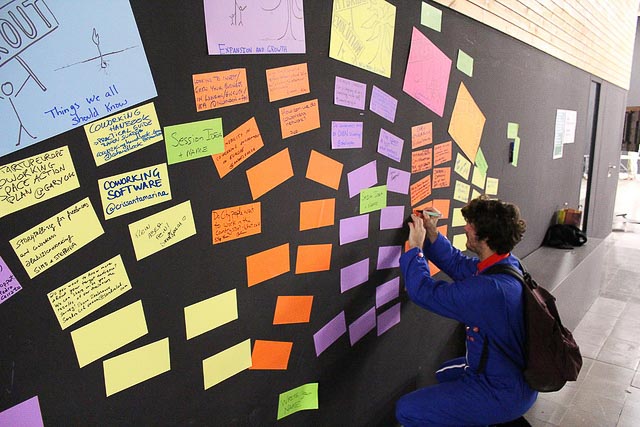While the Urban Edge strives to provide readers with daily news and insights about urban policy, we’re also voracious readers of city news ourselves. As part of a new weekly feature, Senior Editor Ryan Holeywell highlights the week’s most interesting articles from around the web about urban policy and city life.
Will $100 Bonuses Foster Better AP Exam Scores?
A program in the Houston school district will offer students -- as well as their teachers -- $100 if they score high enough on some Advanced Placement tests, the Houston Chronicle reports. The program comes at a time when two-thirds of the district's AP exams don't have high enough scores to translate to college credit.
How Much Do Startup Accelerators Help Cities?
In community across the country, so-called "accelerators" -- designed to teach startups the fundamentals of business and connect them with VC funding -- are sprouting up. Those programs play a key role in helping to expand startup activity beyond the country's primary tech hubs, City Lab reports. But whether governments should be involved with creating them is another matter.
The Imminent Death of Smoking in Public Housing
Public housing agencies say they need more time to implement an Obama administration proposal to ban smoking in public housing units, Governing reports. One issue that's being debated is just how heavy a hand agencies should have when it comes to enforcing the policy. "Of course we don’t want our homeless population smoking," said Preston Prince, executive director of the Fresno Housing Authority. "We just don’t want eviction to be the hammer we hang over their heads about it."
New York Schools Wonder: How White Is Too White?
The education agency in New York City is pursuing an initiative aimed at maintaining racial and socioeconomic balance at schools in the city's most rapidly-gentrifying neighborhoods. Principals can set aside a percentage of slots for low-income families, English language learners, and other categories as a way to create diversity, the New York Times reports. "I love the fact that so many white affluent families would want to send their children to my school," said John O’Reilly, principal of a popular magnet school. "But I know the impact it has on the diversity of my school."
New Stadium? Teams Now Want the Whole Neighborhood
A growing number of professional sports teams are developing the land near their new stadiums in an effort to access new revenue streams, Bloomberg reports. In some cases, the new projects offer a way for stadiums to get even more taxpayer subsidies than they would for a stadium alone. "By controlling the mixed-use developments surrounding the ballparks, owners have found a new way to profit off the generosity of local municipalities -- even when stadiums are publicly owned," Bloomberg writes.

